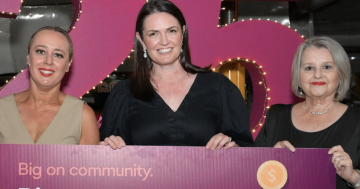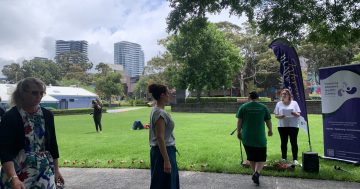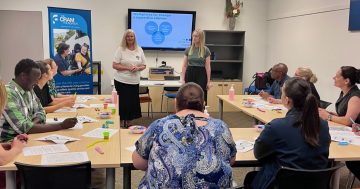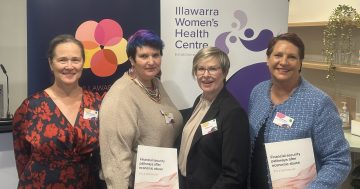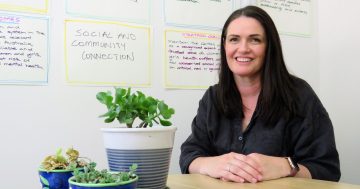
Increased tensions over the holiday season can lead to an increase in cases of family and domestic violence. Photo: Shutterstock.
Christmas is meant to be a time of joy and togetherness but for many the stress and financial outlay of the festive season can exacerbate tensions within the home and lead to an increase in violence while many support services close down.
According to recent data by the Australian Bureau of Statistics, an estimated 3.8 million people aged 18 years and over have experienced physical and/or sexual violence by an intimate partner or family member since the age of 15.
Many more have suffered economic or emotional abuse.
And Illawarra Women’s Health Centre Executive Director Sally Stevenson said things tended to get worse for many victims over the holiday period.
“We know historically, and all the evidence shows, that as Christmas comes closer, as the summer holidays start, then the incidence of domestic, family and sexual violence goes up,” Ms Stevenson said.
“And particularly in the current circumstances where cost of living is having an impact, still the effects of COVID are being seen, we just know that the rates go up and a lot of services close down so we have to be very mindful of what kind of support women can access in a really difficult time.”
She said there were a number of factors that made it a particularly difficult time.
“There are intensified parental custody battles because perpetrators use children as weapons and there’s often a clash over where the children will spend Christmas,” Ms Stevenson said.
“There’s also the intensity of the cost of Christmas itself and the expectations of gifts and food and often if there’s no money around or a woman’s being financially abused or is indeed suffering from cost-of-living crisis, that puts a lot of anxiety and pressure on the mother but also on the family.”
And what some people may see as the highlights of the holidays, can actually create added risk.
“It’s a time where there’s often a lot more partying and drinking and that is a contributing factor to violence,” Ms Stevenson said.
“And the children are at home which can often be stressful because if you don’t have any money or you don’t have anything to do with them then that can be exacerbating the situation.”
With most of these incidents happening behind closed doors it can be incredibly hard to detect, so keeping an open mind and creating a safe space for someone that might be struggling is vital.
“Look out for some of the warning signs around control and women not being able to go out and do things or being restricted in a way that they can behave,” Ms Stevenson said.
“And always, always, if a woman comes to you, if a friend comes to you, if someone in your family comes to you and expresses that they are experiencing this violence and abuse, believe them.
“Don’t judge them, just ask what you can do for them and let them know that you are always there as a friend with an open ear, and an open heart and an open home if they need it.”
If you see something that sparks concern, approaching the situation privately, empathetically and non-judgmentally can help give them the opportunity to open up if they feel comfortable doing so.
“You don’t want to ask a question like, ‘Why did you let him do that’, you want to ask a question like, ‘Are you OK?’, ‘Do you want to come around to my place for a while?’, ‘Are the kids OK?’, ‘Is there anything I can do for you?’” Ms Stevenson said. “Those open-ended questions that allow the space for a woman to speak about what she’s going through, if she feels ready.
“There’s no point in forcing the issue or trying to extract information; that only can be seen as a threat.”
Many services close over Christmas but there are still hotlines being manned for people who need advice or support, and law authorities if a situation escalates.
“There’s always the police, but certainly we know women are not always comfortable going there. But if your safety or the safety of your children is at risk, we absolutely recommend calling the police,” Ms Stevenson said.
And resources such as MensLine and Men’s Referral Service can help support people who are concerned about their own behaviour and how these stressors could be having an impact.
“What we also want is for men to recognise what’s happening in themselves, with their friends and family and to also call it out.
“This is about the perpetrators’ behaviour and we need our community to be calling that out, supporting them to make change and stopping them from doing this.”
If you or someone you know is in need of crisis support, contact 1800RESPECT (call 1800 737 732 or text 0458 737 732) or police on triple zero.










